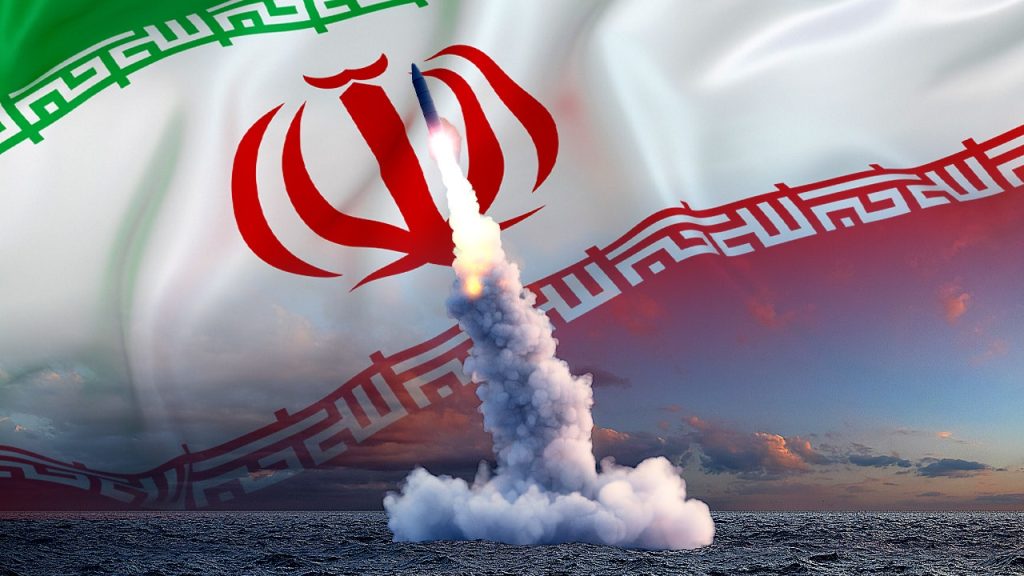A recent intelligence report from Austria has raised serious concerns about Iran’s ongoing nuclear weapons program, directly contradicting assessments made by U.S. officials. The Austrian Federal Office for the Protection of the Constitution indicates that Iran is pursuing nuclear capabilities to enhance its regional dominance and deter potential military threats. This report emerges amidst high-stakes negotiations involving Iran and the U.S. regarding its nuclear ambitions, placing additional pressure on diplomatic efforts led by the Trump administration.
| Article Subheadings |
|---|
| 1) The Austrian Intelligence Findings |
| 2) Contrasting Views: U.S. vs. Austrian Reports |
| 3) Implications for U.S. Foreign Policy |
| 4) Iran’s Support for Terrorism |
| 5) The Way Forward: Diplomatic Challenges |
The Austrian Intelligence Findings
Austria’s Federal Office for the Protection of the Constitution released a startling report asserting that Iran’s nuclear weapons development program is significantly more advanced than previously believed. According to the report, Iran has developed a growing arsenal of ballistic missiles that are capable of delivering nuclear warheads over considerable distances. This assessment reinforces a perception of Iran actively pursuing nuclear capabilities to assert its influence across the Middle East and beyond. The Austrian intelligence community described Iran’s strategy as comprehensive rearmament aimed at making the regime immune to future attacks.
Contrasting Views: U.S. vs. Austrian Reports
Contrasting sharply with the Austrian report, officials from the U.S. Office of the Director of National Intelligence (ODNI) claim that Iran is not currently building a nuclear weapon. Director Tulsi Gabbard indicated to the Senate Intelligence Committee that Iran’s Supreme Leader, Ayatollah Ali Khamenei, has not authorized any continuation of the nuclear weapons program that was halted in 2003. This conflicting narrative raises important questions regarding the reliability and completeness of intelligence assessments across the globe.
The differences in these assessments are accentuated by commentary from experts like David Albright, a physicist and president of the Institute for Science and International Security. Albright contends that the U.S. intelligence community is relying on outdated evaluations and misinterprets the realities of Iran’s nuclear ambitions. He suggests that Europe—particularly Germany and Austria—has provided more timely assessments to the developments concerning Iran’s nuclear capabilities.
Implications for U.S. Foreign Policy
The implications of these divergent assessments are profound for U.S. foreign policy, especially in context to President Trump’s strategy for engaging Iran. With peace negotiations already delicate, the Austrian intelligence report presents a significant hurdle for any diplomatic resolutions aimed at curbing Iran’s nuclear ambitions. A White House official has emphasized that the Trump administration’s commitment remains strong against allowing Iran to attain nuclear weapon capabilities.
The findings also put additional pressure on European allies and could complicate multinational negotiations designed to contain Iran’s nuclear program. More importantly, they raise concerns regarding the extent to which Iran may engage in aggressive military behavior should it perceive a lack of accountability regarding its nuclear aspirations.
Iran’s Support for Terrorism
The Austrian intelligence report further highlights Iran’s active role as a state sponsor of terrorism, emphasizing its connections with groups such as Hamas and Hezbollah. According to the report, Iran has provided these organizations with weapons and military support, undermining regional stability and raising alarms globally concerning Iran’s ambitions beyond nuclear development.
This development aligns with previous incidents, such as the conviction of Asadollah Asadi, a former Iranian diplomat, who was found guilty for attempting to orchestrate an attack against a gathering of Iranian dissidents in 2018. Such instances illustrate the broader implications of Iran’s regime behavior, particularly in its willingness to utilize nefarious means to maintain control and influence.
The Way Forward: Diplomatic Challenges
The ongoing revelations posed by the Austrian report present significant challenges moving forward in diplomatic negotiations. Should the international community move ahead with talks, they will need to reconcile these new intelligence insights with existing diplomatic frameworks such as the Joint Comprehensive Plan of Action (JCPOA).
Negotiators might face an uphill battle in convincing Iran to engage constructively, especially in light of evidence that suggests Tehran will not willingly relinquish its aspirations for nuclear weaponry. Such challenges also compel the U.S. and its Western allies to reassess their strategies, perhaps considering contingencies that include stronger sanctions or collective defense measures.
| No. | Key Points |
|---|---|
| 1 | Austria’s intelligence report suggests Iran’s nuclear program is more advanced than U.S. officials indicate. |
| 2 | Differences between U.S. and Austrian assessments highlight potential issues within the U.S. intelligence community. |
| 3 | Iran’s pursuit of nuclear weapons intersects with its role as a state sponsor of terrorism, raising international security concerns. |
| 4 | Diplomatic negotiations involving Iran face escalating challenges due to diverging intelligence reports. |
| 5 | International relations may evolve towards stronger sanctions and heightened defense strategies against Iranian aggression. |
Summary
The revelations in the Austrian intelligence report starkly oppose the current U.S. intelligence stance regarding Iran’s nuclear ambitions. With both domestic and international implications, these findings not only signal challenges for ongoing diplomatic negotiations but also highlight a pressing need for reevaluation in the West’s approach to managing relations with Tehran. The emphasis on Iran’s military capabilities and its connections to terrorism will likely compel policymakers to adopt a more robust strategy moving forward.
Frequently Asked Questions
Question: What are the implications of Austria’s intelligence report on Iran’s nuclear program?
The report indicates that Iran’s nuclear ambitions are far more advanced than recognized by U.S. officials, potentially complicating diplomatic negotiations and prompting a reassessment of foreign policy approaches.
Question: How does the U.S. intelligence community view Iran’s nuclear program?
The U.S. Office of the Director of National Intelligence asserts that Iran is not currently developing nuclear weapons and has not resumed its nuclear armament program halted in 2003.
Question: Why is Iran’s support for terrorism significant in global security?
Iran’s connections with militant groups like Hamas and Hezbollah pose serious threats to regional stability, as these alliances can facilitate armed conflicts and terrorist activities, further complicating international relations.
